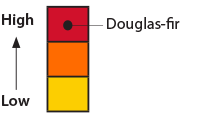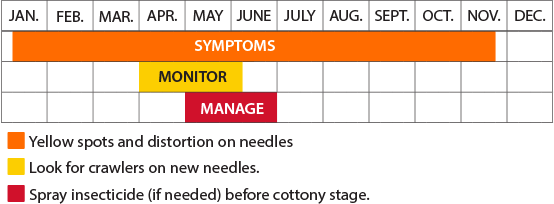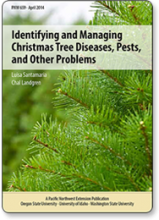Adelges Cooleyi
Alternate hosts: Picea spp. such as Colorado blue spruce and other spruces
- Yellow spots on needles
- Needles with bends or crooks
- Small, white, cottony balls on the underside of needles or pepper-sized crawlers on new needles
- Premature needle drop
- Rhabdocline needle cast
- Douglas-fir needle midge
- Examine the underside of needles for overwintering nymphs that could be covered by white wax (cottony tufts).
- Control for 2 years before harvest to have damage-free needles.
- Remove any mature spruce or Douglas-fir that may be a source of infestation.
- Use sprays when the crawlers are present and before the cottony stage occurs.
- Spot spray where problem populations are localized.
- Note: In most cases low to moderate numbers of this pest will not require control(s).

- High susceptibility: Douglas-fir

- Look for yellow spots and distortion on needles: Mid-January through Mid-November
- Look for crawlers on new needles: April through mid-June
- Spray insecticide (if needed) before cottony stage: May through June


